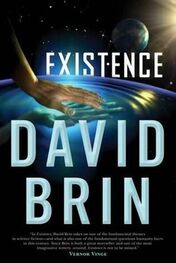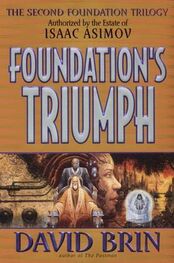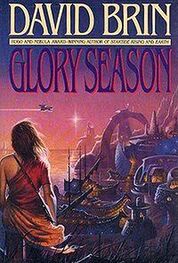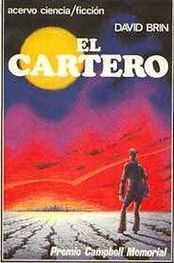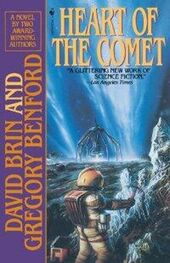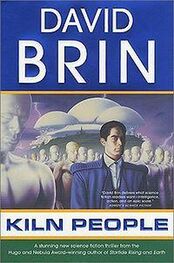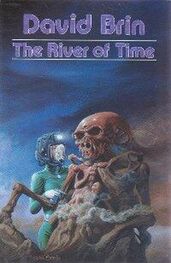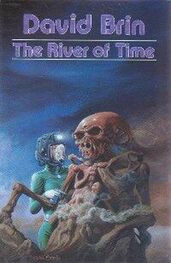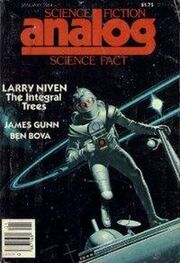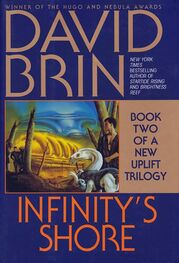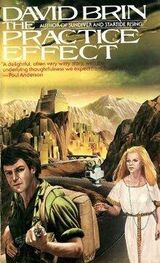Of late Stan had been wondering ever more about that. Nature, even down to the lowliest quark, seemed to be performing, as if for an audience. Arguments raged between adherents of the strong and weak anthropic principles, over whether observers were required by the universe or merely convenient to it. But everyone now agreed that having an audience mattered.
So much, then, for the debate over what Newton would say if he were snatched out of his time and brought to the present. His clockwork world was as alien to Stan’s as that of a tribal shaman. In fact, in some ways the shaman actually had it hands down over prissy old Isaac. At least, Stan imagined, the shaman would probably make better company at a party.
“One minute! Keep your eye on—”
Alex’s voice cut off suddenly as automatic timers sent the crash doors hissing shut. Stan shook himself, hauling his mind back and making an earnest effort to concentrate. It would have been different were there something for him to do. But everything was sequenced, even data collection. Later, they would pore over it all and argue. For now, though, he had only to watch. To observe…
Before man , he wondered, who performed this role for the universe ?
There appears to be no rule that the observer has to be conscious. So animals might have served without being self-aware. And on other worlds, creatures might have existed long before life filled Earth’s seas. It isn’t necessary that every event, every rockfall, every quantum of light be appreciated, only that some of it, somewhere, come to the attention of someone who notices and cares.
“But then,” Stan debated himself aloud, “Who noticed or cared at the beginning? Before the planets? Before stars?”
Who was there in the pre-creation nothing to watch the vacuum fluctuation of all time? The one that turned into the Big Bang?
In his thoughts, Stan answered his own question.
If the universe needs at least one observer in order to exist. Then that’s the one compelling argument for the necessity of God .
The counter reached zero. Beneath it, the panel of fused quartz remained black. Nevertheless. Stan knew something was happening. Deep in the bowels of the chamber, the energy state of raw vacuum was being forced to change.
Uncertainty . That was the lever. Take a cubical box of space, say a centimeter on a side. Does it contain a proton? If so, there’s a limit to how much you can know about that proton with any sureness. You cannot know its momentum more precisely than a given value without destroying your chance of knowing where it is. Or if you find a way to zoom in on the box until the proton’s location is incredibly exact, then your knowledge of its speed and direction plummets toward zero.
Another linked pair of values is energy and time. You may think you know how much or little energy the box contains. (In a vacuum it tends toward baseline zero.) But what about fluctuations? . What if bits of matter and anti-matter suddenly appear, only to abruptly disappear again? Then the average would still be the same, and all account books would stay balanced.
Within this chamber, modern trickery was using that very loophole to pry away at Nature’s wall.
Stan glanced at the mass gauge. It sped upscale rapidly. Femtograms, picograms, nanograms of matter coalesced in a space too small to measure. Micrograms, milligrams… each newly born hadron pair shimmered for a moment too narrow to notice. Particle and antiparticle tried to flee, tried to annihilate. But before they could cancel out again, each was drawn into a trap of folded space, sucked down a narrow funnel of gravity smaller than a proton, with no more personality than a smudge of blackness.
The singularity began taking on serious weight. The mass gauge whirled. Kilograms converted into tons. Tons into kilotons. Boulders, hillocks, mountains poured forth, a torrent flowing into the greedy mouth.
When Stan was young, they said you weren’t supposed to be able to make something from nothing. But nature did sometimes let you borrow . Alex Lustig’s machine was borrowing from vacuum, and instantly paying it all back to the singularity.
That was the secret. Any bank will lend you a million bucks… so long as you only want it for a microsecond.
Megatons, gigatons… Stan had helped make holes before. Singularities more complex and elegant than this one. But never had anyone attempted anything so drastic or momentous. The pace accelerated.
Something shifted in the sinuses behind his eyes. That warning came moments before the gravimeters began singing a melody of alarm… full seconds in advance of the first creaking sounds coming from the reinforced metal walls.
Come on, Alex. You promised this wouldn’t run away.
They had come to this lab on a distant asteroid on the off chance something might go wrong. But Stan wondered how much good that would do if their meddling managed to tear a rent in the fabric of everything. There were stories that some scientists on the Manhattan Project had shared a similar fear. “What if the chain reaction doesn’t stay restricted to the plutonium,” they asked, “but spreads to iron, silicon, and oxygen?” On paper it was absurd, but no one knew until the flash of Trinity, when the fireball finally faded back to little more than a terrible, glittering cloud.
Now Stan felt a similar dread. What if the singularity no longer needed Lustig’s machine to yank matter out of vacuum for it? What if the effect carried on and on, with its own momentum… ?
This time we might have gone too far.
He felt them now. The tides. And in the quartz window, mediated by three hundred half mirrors, a ghost took shape. It was microscopic, but the colors were captivating.
The mass scale spun. Stan felt the awful attraction of the thing. Any moment now it was going to reach out and drag down the walls, the station, the planetoid… and even then would it stop?
“Alex!” he cried out as gravitational flux stretched his skin. Viscera migrated toward his throat as, uselessly, he braced his feet.
“Dammit, you—”
Stan blinked. His next breath wouldn’t come. Time felt suspended.
Then he knew.
It was gone.
Goosebumps shivered in the tidal wake. He looked at the mass gauge. It read zero. One moment it had been there, the next it had vanished.
Alex’s voice echoed over the intercom, satisfaction in his voice. “Right on schedule. Time for a beer, eh? You were saying something, Stan?”
He searched his memory and somewhere found the trick to breathing again. Stan let out a shuddering sigh.
“I…” He tried to lick his lips, but couldn’t even wet them. Hoarsely, he tried again. “I was going to say… you’d better have something up there stronger than beer. Because I need it.”
They tested the chamber in every way imaginable, but there was nothing there. For a time it had contained the mass of a small planet. The black hole had been palpable. Real. Now it was gone.
“They say a gravitational singularity is a tunnel to another place,” Stan mused.
“Some people think so. Wormholes and the like may connect one part of spacetime with another.” Alex nodded agreeably. He sat across the table, alone with Stan in the darkened lounge strewn with debris from the evening’s celebration. Everyone else had gone to bed, but both men had their feet propped up as they gazed through a crystal window at the starry panorama. “In practice, such tunnels probably are useless. No one will ever use one for transportation, for instance. There’s the problem of ultraviolet runaway—”
“That’s not what I’m talking about.” Stan shook his head. He poured another shot of whiskey. “What I mean is, how do we know that hole we created hasn’t popped out to become a hazard for some other poor bastards?”
Читать дальше

